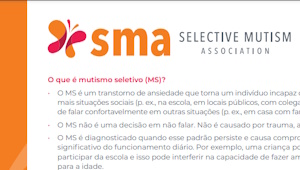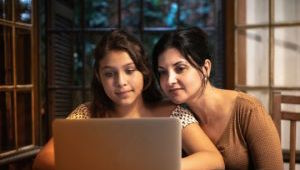Online Library
Selective Mutism Exposure Ideas for Teens/Young Adults
When we talk about doing exposures for selective mutism, we don’t only mean with young kids. Exposures can be as important for teenagers, young adults, and even adults with selective mutism and social anxiety. Sometimes we just have to be more creative about the exposures we do to make them appropriate for older individuals. With younger kids, parents can make artificial exposures, but with older individuals it is important to make the exposure seem more natural to their day-to-day life. The right exposure at the right time is heavily dependent on the person and where they are in their treatment. For someone, one exposure could be difficult yet doable, but for another person that exposure might be too difficult to try at the moment. Exposures are meant to be difficult; they just aren’t meant to be torturous! Even when someone is past the point of an exposure being difficult, it is important to keep practicing because it can be easy to regress and for things to become difficult again.
Some exposure ideas for older individuals:
(Many of these things have become more challenging with COVID-19, but some can still be done safely.)
- Call a store/library/restaurant/museum to see when they open/close
- Ask if a place is hiring or ask for a job application
- Have the teen/young adult order the take out your ordering that night
- When you go to a drive thru, have them order
- If they have difficulties with online communication, have them email (or online chat) a store to ask a question
- Post something on social media (can start with text-only first, then go to pictures not including them, then pictures of themselves if that progression is more manageable)
- Send a friend a snapchat/video message
- Text a peer from school about homework
- Email their teacher/professor about an assignment
- If you go with them to Starbucks/Dunkin/ice cream/etc., have them go to the counter and order for the group.
- Practice a new language on Duolingo
- Ask where an item is in the grocery store/bookstore etc.
- Borrow a book from the library
- Take an online (or in- person) class (workout class, yoga, zumba, etc)
- If they are interested in a celebrity/author/athlete/musician, look online to see if they might be giving a Zoom talk to join. If the person is a lesser-known celebrity, there might even be an opportunity to ask a question. (There are a ton of these types of things now because of COVID-19.) Check Eventbrite.com or MeetUp.com
- Extracurricular activities (with school or outside of school) are a great way to get regular contact with the same group of people in a structured environment. Working on a structured activity can reduce anxiety about what to talk about since everyone will be working on the same thing. It’s important to find something they are extremely interested in because it will make doing the activity much more rewarding. This will hopefully make it feel less like an exposure and more like just doing something they find fun/interesting. For older individuals (even adults!), a good place to check is MeetUp.com. Depending on where you live, there may be a ton of activities and clubs that meet regularly like writing, music, art, tech, sports, and almost anything you can think of. Many events are free and do not have any long-term commitments.
- Volunteering can also be helpful because the focus is on helping other people not on the individual so it can reduce anxiety.
- Summer programs focused on a specific topic they enjoy can also be good practice with getting comfortable with other kids/teens. It might also be helpful if the other people there are not the same kids from their usual school.
Contributed by : Shelley Avny, Ph.D., Child & Adolescent Anxiety Practice




